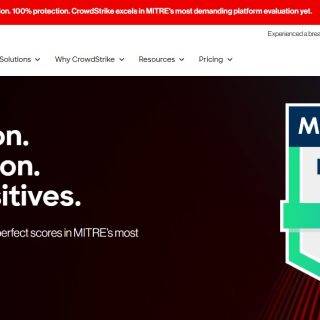
A vendor who hides past failures but promises future security?
A vendor with a transparent, proven track record of delivering security?
In a cut-throat market like endpoint security, where competition is fierce and spending is high, success hinges on differentiation—showing buyers the value you offer preferably without increasing costs. But in such an unregulated industry, where every vendor claims to have the “best” product without third-party standards or guidelines to validate these claims, educating buyers becomes a daunting task. Cybersecurity, unlike simpler consumer markets doesn’t offer an easy way to judge whether a product will truly protect you from future threats.
However, the intense competition in this market also signals a positive—there’s money to be made, and people are actively spending. The challenge for vendors is to stand out in a way that adds enough value without raising costs, and ideally, even lowering them. It’s about showing the customer why your product is different and why that difference matters to them. But how do you do this when there’s no objective standard to prove your product’s superiority?
The Challenge of Differentiation and Consumer Confusion
In today’s cybersecurity landscape, marketing has taken precedence over performance. Clever and aggressive marketing strategies convince prospects that they’ve already found the best solution, even when the efficacy of those solutions is questionable. With no objective standards to rely on, buyers are left to navigate a crowded, complex market without any reliable way to compare products based on real-world performance.
For vendors offering genuinely superior solutions, the task becomes twofold: not only do they need to educate prospects on the value they provide, but they also need to dismantle the misconceptions planted by competitors through flashy, often misleading marketing.
The difficulty in educating buyers is exacerbated by the fact that cybersecurity is not easy for consumers to judge. Unlike buying a burger from a fast-food chain, where you can immediately decide if it tastes good, the effectiveness of endpoint security solutions can’t be determined until a cyberattack happens—or doesn’t. The future is unpredictable, and this uncertainty makes it even harder for buyers to feel confident about their choices.
Lessons from the Automotive and Aviation Industries
In industries like automotive and aviation, transparency is key to maintaining trust and ensuring safety. Historical performance data is readily available, allowing consumers to make informed decisions based on past performance. If a car manufacturer or airline has a poor safety record, consumers are likely to look elsewhere. This type of transparency builds trust and accountability, and it is a framework the cybersecurity industry desperately needs.
Cybersecurity, however, remains shrouded in secrecy, despite playing a critical role in protecting sensitive data and maintaining digital trust. This lack of transparency is a significant issue. Without access to historical performance data, consumers can’t accurately judge which vendors provide the best protection, leading to confusion and misguided investments.
Cyber Transparency as the Differentiator
This is where Cyber Transparency comes in. The CyberTransparency Forum advocates for the release of historical cybersecurity performance data, pushing vendors to be more transparent about their efficacy. By providing clear, verifiable metrics on how well their products have performed, cybersecurity vendors can differentiate themselves based on proven results, not just marketing claims.
With Cyber Transparency, businesses and consumers would be able to:
- Evaluate cybersecurity products based on historical performance, ensuring they’re choosing solutions that have proven effective in real-world situations.
- Make more informed decisions, guided by tangible data rather than marketing promises.
- Reduce the risk of future breaches, knowing they’ve selected a vendor with a strong track record.
By publishing their performance data, vendors offering the best protection can rise above the noise. Buyers would no longer have to rely on marketing messages to make decisions—they would have access to concrete proof of how well each product performs.
For more information, visit the CyberTransparency Forum, a framework dedicated to driving openness and accountability in the cybersecurity industry.
The Government’s Role in Mandating Transparency
Government regulations have already made strides toward greater transparency in certain areas. For example, in the United States, the Securities and Exchange Commission (SEC) requires publicly traded companies to disclose cybersecurity incidents that could have a material impact on investors. Similarly, the European Union’s General Data Protection Regulation (GDPR) mandates that organizations report data breaches within 72 hours of discovery if they pose a risk to individuals’ rights and freedoms.
But the cybersecurity vendors themselves—those responsible for protecting these organizations—often operate without the same level of scrutiny. This imbalance, where the victims must disclose breaches while vendors remain opaque about their performance, creates a troubling double standard.
Transparency as a Competitive Advantage
In a cut-throat market, transparency becomes a powerful competitive advantage. Not only does it allow for differentiation based on real efficacy, but it also fosters trust with customers who are otherwise uncertain about what they’re getting. Cyber Transparency breaks through the marketing mirage, providing buyers with the clarity they need to invest in genuinely effective solutions.
This concept doesn’t just help vendors stand out—it transforms the entire industry. By pushing for transparency, cybersecurity can move from a marketing-driven space to a performance-driven one, where vendors are held accountable for their results and customers can confidently make investments that protect their future.
The Key to Success in the Endpoint Security Market
As the number of cyber threats continues to rise, so does cybersecurity spending. However, an alarming number of high-profile data breaches still occur, even as companies pour more and more resources into protection. This paradox highlights a critical issue: spending alone does not equate to better security. Too often, organizations are investing in solutions that fail to deliver the promised protection.
The real key to success in the endpoint security market lies in differentiation through transparency. Vendors must find ways to show their unique value to buyers and back up their claims with hard data. Educating buyers on this differentiation is crucial, and with the introduction of Cyber Transparency, vendors can build trust by showing their past successes in protecting customers.
At the end of the day, buyers need to feel confident that the security solution they choose will protect them from unknown future threats. The ability to demonstrate a strong track record of security can be a game-changer. Cyber Transparency helps bridge the gap between marketing claims and real-world performance, giving buyers the data they need to make informed decisions.
Who Will You Trust?
- A vendor who hides past failures but promises future security?
- A vendor with a transparent, proven track record of delivering security?
By embracing Cyber Transparency and following the guidelines of the CyberTransparency Forum, vendors can not only differentiate themselves but also contribute to a more secure, data-driven future for cybersecurity. In an unregulated industry where marketing has historically ruled, transparency offers a fresh approach—one that builds trust, fosters accountability, and ultimately drives better protection for customers.
“Who Will You Trust: A Vendor Who Hides Past Failures or One with a Transparent, Proven Record?”
“Will You Trust a Vendor Who Promises Future Security or One Who Has Already Proven It?”
“Who Will You Rely On: A Vendor with Empty Promises or One with a Track Record of Success?”
“Who Deserves Your Trust: A Vendor With Hidden Failures or One With Clear, Proven Results?”
“Who Will You Choose: A Vendor Who Promises Security or One Who’s Already Delivered It?”
“Who Will Secure Your Future: A Vendor Who Hides Their History or One Who’s Transparent About It?”



